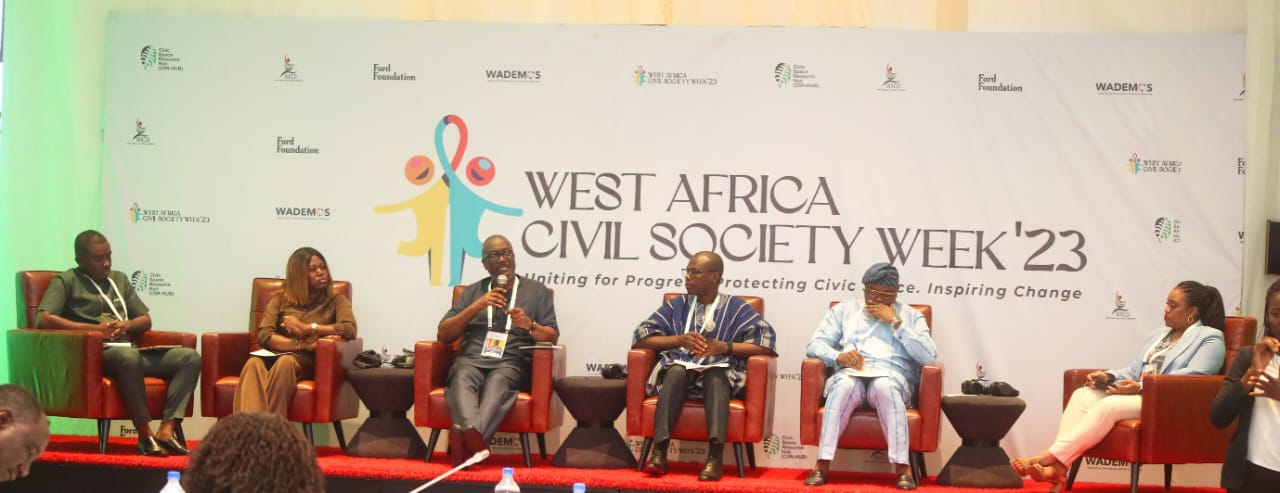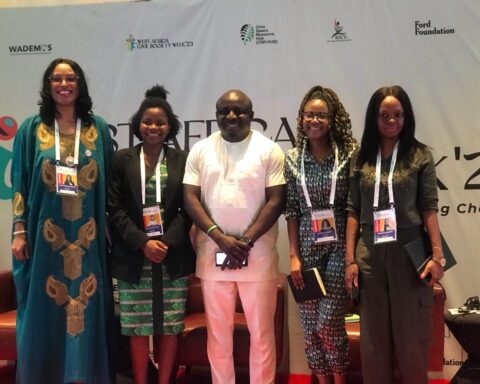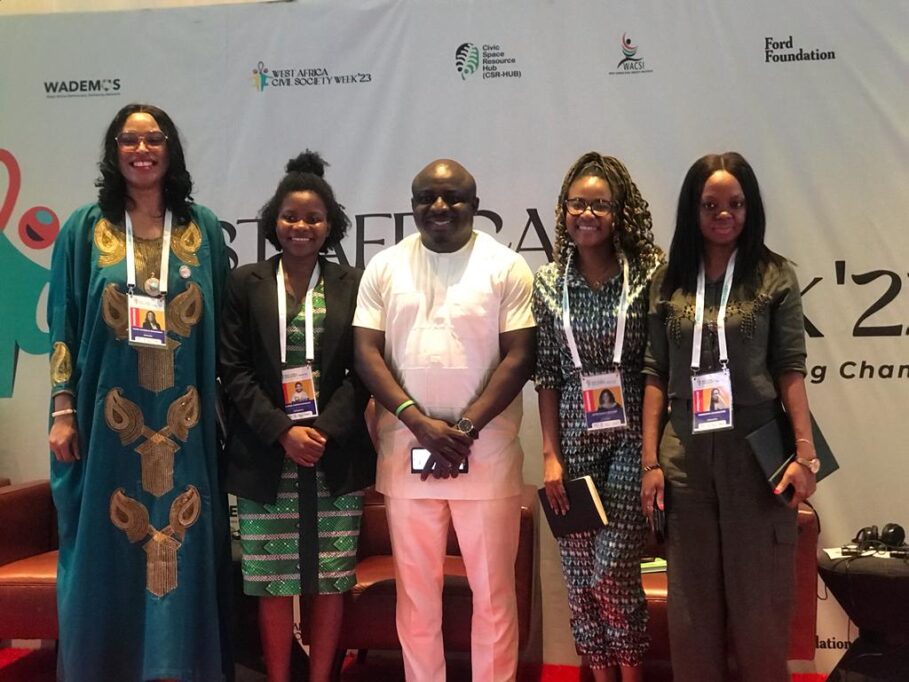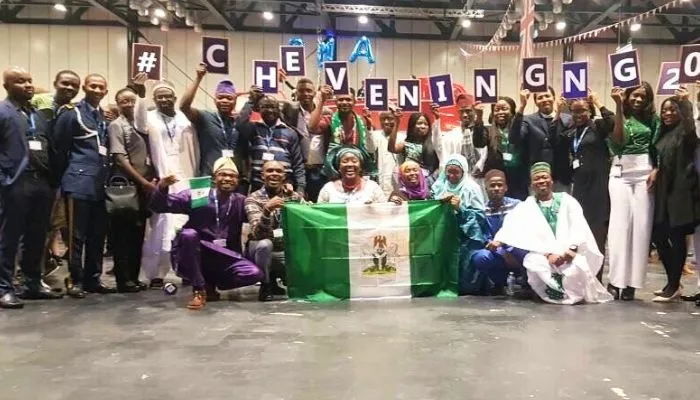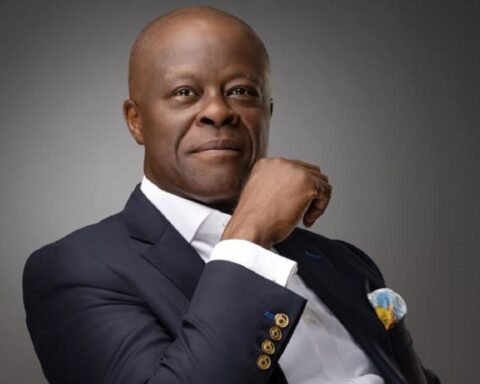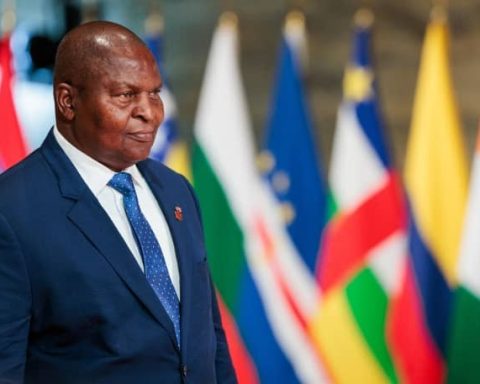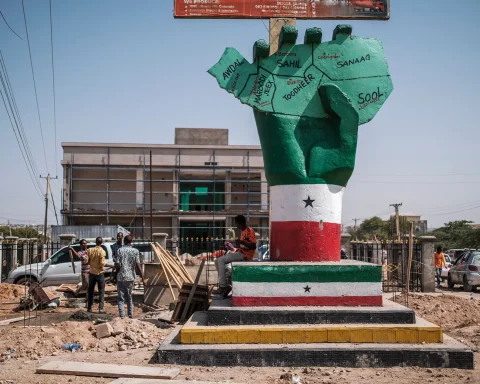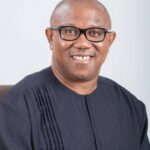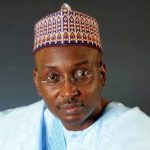Experts among Civil Society Organisations have warned against the democratic backsliding and civic space constriction in the West African region.
During the plenary session titled “Shrinking Civic Space and Democratic Backsliding in West Africa: Innovative Actions from Civil Society and Partners” at the West African Civil Society Week ’23 held at the Lagos Mariot Hotel, GRA Ikeja, experts from across the region discussed the pressing challenges facing democracy in West Africa and how it affects civic engagement.
Join our WhatsApp ChannelThe panel discussion shed light on the multifaceted challenges to democracy in West Africa and highlighted the importance of concerted efforts by civil society and development partners to safeguard democratic principles and expand civic space in the region.
Speaking among the panelists is Professor H. Kwasi Prempeh, Executive Director of CDD-Ghana and director of West Africa Democracy Solidarity Network (WADEMOS), who cautioned against the gradual erosion of democratic principles in Africa. He highlighted the risk of abuse of power when leaders are granted excessive authority, drawing parallels between the timelines of democratic and dictatorial regimes. He expressed concern about the vulnerability of states and the emergence of regional issues in the face of the current wave of coups.
READ ALSO: WASCSW23: Youth Activism, Technology Amplification, Inclusive Governance Takes Centre Stage
He said: “Africa’s deviation from true democracy is step by step. It does not just happen overnight. The reason we are experiencing this is due to the transitions we had to civilian rules in the 1990s. The presidents were given extraordinary powers. When such powers are given to individuals there are chances of abusing them. For the young ones, because they have lived in a democratic time, they do not have the experiences that we have, so they jump up for a dictatorial government. Democratic government in West Africa is 30 years, while the dictatorial government also used 30 years. The reason we are going through these incessant coups now is that it came at the weakest time where the capacity of the states is at the weakest time. It was previously a state issue but presently it is regional.”
Also, Dr. Festus Aubyn, Regional Coordinator for Research and Capacity Building at WANEP, emphasized the need for early detection of warning signs, especially evident after the coup in Mali. He advocated addressing the root causes instead of relying solely on military intervention, pointing to factors like ethnic divisions and corruption in governance as contributors to the region’s challenges. He warned against a cycle of counter-coups if not addressed.
“After the coup in Mali, we see how the extremists took over the Armed forces. In doing this, there are always early warning signs in countries like Mali, Burkina Faso, and Niger Republic among others. But the challenges are the time to respond to them. Another problem is what we see in the deployment of soldiers but rather we should focus on tackling the roots of the problems by using other means. We also see that the issue of ethnic division, and corruption among other things have contributed to the situation we find ourselves in. If we are not careful we will further have counter-coups in our region.” he asserted.
Another panelist is Ms. Nnenana Paul-Ugochukwu, Chief Operating Officer of Paradigm Initiative (PIN), Nigeria, who highlighted the powerful influence of social media and Artificial Intelligence (AI) in shaping perceptions, drawing attention to their role in recent elections, especially in Nigeria. She underscored the importance of responsible use of these technologies and proposed leveraging AI and social media for citizen engagement, data-driven policies, and inclusivity. Ms. Paul-Ugochukwu also called for increased collaboration between Civil Society Organisations and the government for a stronger democracy.
Mr. Oyebisi Oluseyi Babatunde, Executive Director of NNNGO, Nigeria, and CSR-Hub Facilitator, acknowledged the progress made by Civil Society but stressed the need for adaptation. He called for improved systems within the Civil Society to ensure effective operations and highlighted the challenges associated with receiving government funding that could compromise their independence.
#WASCSW23
Emmanuel Ochayi is a journalist. He is a graduate of the University of Lagos, School of first choice and the nations pride. Emmanuel is keen on exploring writing angles in different areas, including Business, climate change, politics, Education, and others.


